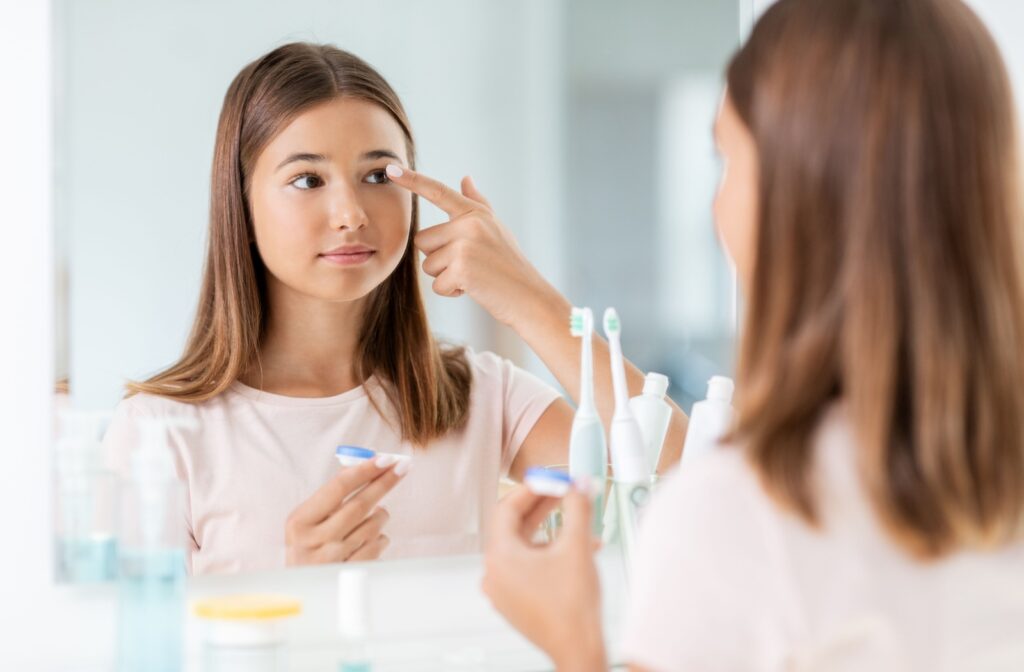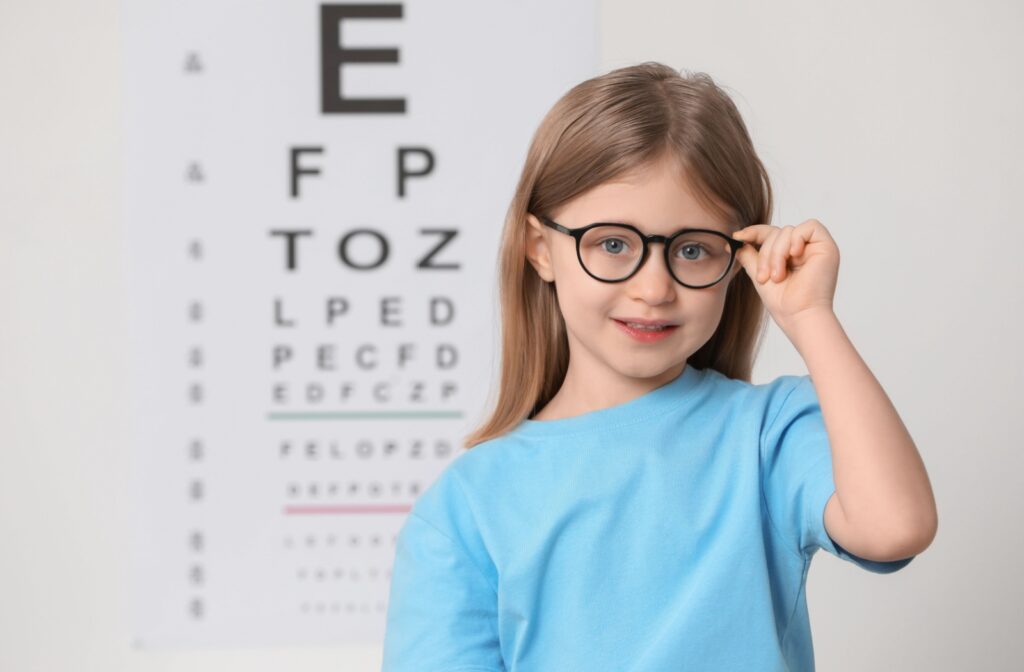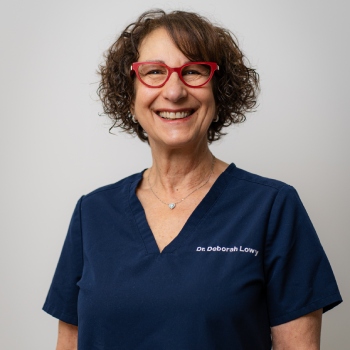As a parent, you want to give your child every opportunity for a healthy future, including their vision. If your child has been diagnosed with myopia (nearsightedness), you may be wondering what you can do beyond simply correcting their vision.
It all starts with a children’s eye exam, where we can evaluate your child’s vision and discuss the best options for their long-term eye health. One specific option is myopia control lenses.
Myopia control lenses are specialized glasses or contacts designed not just to correct blurry vision, but to actively help slow down the progression of nearsightedness in children.
What Is Myopia & Why Does It Worsen?
Myopia occurs when the eye grows slightly too long from front to back. This causes light to focus in front of the retina instead of directly on it, making distant objects look blurry.
Signs of Nearsightedness in Children
Your child may be developing myopia if they:
- Squint to see distant objects
- Have difficulty seeing the board at school
- Sit very close to screens
- Complain of headaches or eye fatigue
Early detection matters. The sooner we begin management, the more we can help slow its progression.
What Causes Myopia Progression?
Both genetics and lifestyle factors play a role. If one or both parents are nearsighted, their child may be more likely to develop myopia.
Modern habits, such as long hours spent reading, using digital devices, or doing close-up tasks indoors, can also contribute. That’s why many children experience worsening vision through their school years.
Types of Myopia Control Lenses & Treatments
Most glasses and contact lenses simply correct blurry vision; they don’t affect how quickly your child’s myopia progresses.
Myopia control lenses do both. They help your child see clearly while also working to slow the eye’s growth during childhood and adolescence.
There are several safe, comfortable options designed for children. Your optometrist will recommend the best fit based on your child’s age, prescription, and lifestyle.
Specialized Spectacle Lenses
These glasses look like regular eyewear but contain a clear central zone for vision correction, surrounded by tiny lenslets. These lenslets send a signal that helps slow the growth of the eye.
Myopia Control Soft Contact Lenses
These are soft contacts worn during the day. They feature different optical zones that correct vision and help reduce eye elongation. They’re an excellent choice for older children or teens who are comfortable with contact lenses.

Overnight Contact Lenses (Ortho-K)
Also known as orthokeratology, these rigid contact lenses are worn overnight. While your child sleeps, the lenses gently reshape the cornea. In the morning, they remove the lenses and can often see clearly all day, without glasses or daytime contacts.
How Myopia Control Helps
Managing myopia isn’t just about reducing how strong your child’s glasses will be. It also helps:
- Lower the risk of future eye diseases like retinal detachment, glaucoma, and myopic maculopathy
- Reduce the rate of prescription changes
- Support better eye health into adulthood
The Importance of Consistent Wear
For these treatments to be effective, your child needs to wear them every day as prescribed. For glasses and soft contact lenses, that typically means wearing them during all waking hours. For ortho-k lenses, overnight wear is essential.
When Should You Start?
It is recommended children begin myopia control when they first become myopia, which can occur at any age.
Most kids adapt quickly to these lenses. Your optometrist will guide you and your child through every step of the process, providing comfort and confidence.
Support Your Child’s Vision with Healthy Habits
Myopia control doesn’t stop with lenses. There are simple, healthy habits that can support your child’s eye health every day:
Encourage More Outdoor Time
Encourage your child to spend time playing outside. Research suggests that spending time outdoors can be beneficial for young eyes. Natural light and looking at distant objects help their eyes relax.
Follow the 20-20-20 Rule
Every 20 minutes of close-up work, encourage your child to look at something 20 feet away for 20 seconds. It’s a simple way to reduce fatigue during screen time or homework.
Start Your Child’s Myopia Control Journey Today
At Lowy & Sewell Eye Care, we know how important your child’s vision is to their development, education, and confidence.
Our optometrists in Vaughan take the time to answer your questions and recommend a personalized plan that suits your child’s unique needs. If your child has recently been diagnosed with myopia or you’ve noticed signs of blurry distance vision, book a children’s eye exam with us today. Together, we can support their vision, now and in the future.



